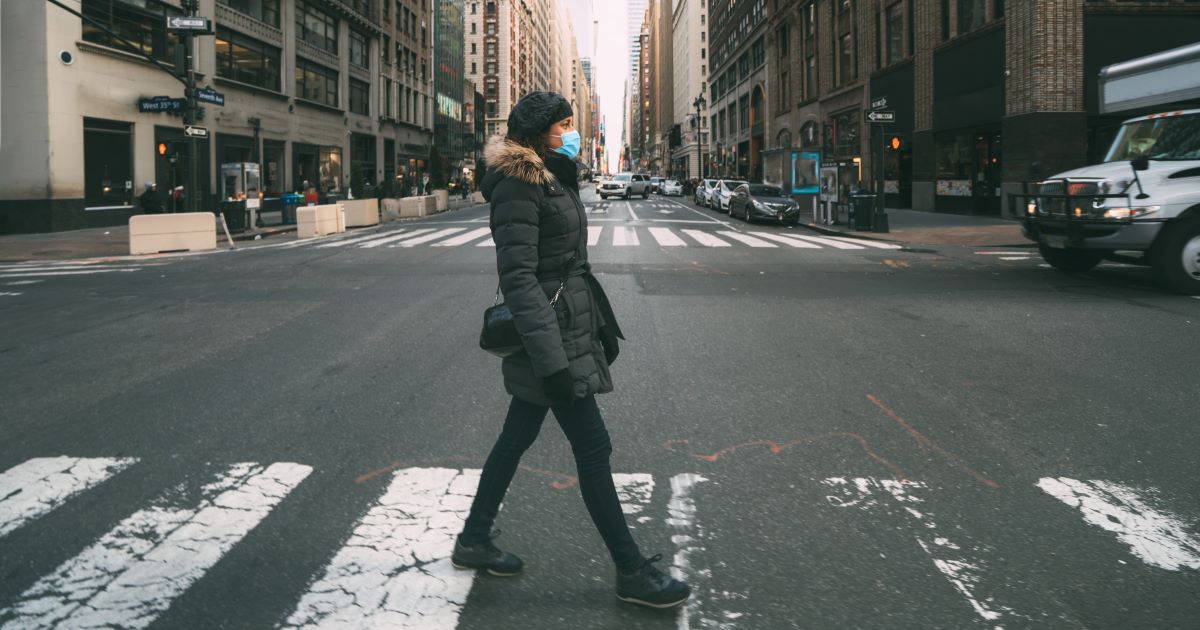


The mood across the board in America today is a compound of fear, frustration, and fury. On one side, we have the fear of the virus: People are worried about their own health and the health of family and friends. They fear the spread of the virus and the second wave. They believe we need to maintain social distancing and quarantine and to open nothing until everything is safe. They are frustrated and furious with people who do not recognize the obvious dangers of relaxing restrictions, who protest the loss of jobs or the closing of churches, or who argue that the shutdown has been an overreaction.
On the other side, we have the fear of the shutdown: People are worried about their livelihood. They want to work, but they cannot because the government has closed their businesses. They worry that their businesses into which they have poured their heart and soul (not to mention their life savings) are being destroyed by the shutdown. They believe that for them to have any financial future, we need to ease the economic restrictions and move the country back to a normal footing. They are frustrated and furious with people who, to feel safe themselves, are willing to destroy other people’s livelihoods.
Related to the second group are those who fear the shutdown because of its political implications: People are worried about incipient totalitarianism and the erosion of civil rights. They see the gutting of First Amendment protections for free exercise of religion and the right of assembly, the censoring of their opinions by tech firms, the difference in the treatment of churches vs. secular businesses including liquor stores, demands to turn over church membership rolls, prohibitions of drive-in church services that maintain all the social distancing rules, and so on.
Convinced that this is a ploy by the government to take away their rights, they believe that the restrictions must be lifted immediately or a dangerous precedent will be set. They are frustrated and furious with the government officials who are taking away their rights and with the “sheeple” who do not recognize the danger and who attack them for exercising their First Amendment right to protest.

Even recognizing the validity of many of these concerns, our response to all the circumstances of life is to be grounded in faith, not fear.
For Christians, none of these are appropriate responses.
Even recognizing the validity of many of these concerns, our response to all the circumstances of life is to be grounded in faith, not fear.
We should, of course, take precautions to avoid getting sick, especially if we are in a high-risk group; we should avoid risking infecting others as well. As Martin Luther said about plague, we must do our best not to be responsible for another’s death or our own. But as Luther also pointed out, when it is our time to die, God will know where to find us with or without the disease. And Christians historically have not feared death in plagues but laid down their lives in service of others. Phil. 1:20-23 gives us a model of how we need to think about death, which is going to come to us all someday unless Jesus returns first.
But what about losing loved ones? This is tragic and painful, and we need to mourn their loss—but not as those without hope. We need to approach even this with the eyes of faith. 1 Thess. 4:13-18 is usually associated with the Rapture, but that misses Paul’s point completely. He is not focused on those of us who are here when Christ returns, but on those who have died, and the passage tells us that they will be with Jesus when he comes back. In the meantime, we know that they are safe with Jesus and that we will join them someday, and so though we are sorrowful at their deaths, we know it is not the end.
Similarly, bankruptcy, losing jobs or businesses or our homes, and other economic hardships are painful on many levels. But even in the face of loss, few of us will starve. On a secular level, we have a strong social safety net. And beyond that, we have a God who promised to never leave us or forsake us, to provide all our needs, to see that we are fed and clothed as we seek his Kingdom and righteousness.
There is nothing wrong with fighting for our livelihood, our businesses, and our family’s financial well-being, but even should the worst happen, we still must live by in faith, trusting God’s goodness, rather than in fear that focuses only on this world and its resources.

There is nothing wrong with fighting for our livelihood, our businesses, and our family’s financial well-being, but even should the worst happen, we still must live by in faith, trusting God’s goodness, rather than in fear that focuses only on this world and its resources.
Paul is a good example for us. His words, “I can do all things through Christ who strengthens me” (Philippians 4:13) are often taken to mean we can accomplish great things through Christ, yet in context it refers to being content whether in plenty or in want. Indeed, he tells Timothy that we should be content simply with our food and clothing (1 Tim. 4:8).
Further, Paul went through far more trouble than we will ever go through (and made good use of his rights as a Roman citizen), yet he assures us that our “light momentary affliction is preparing for us an eternal weight of glory beyond all comparison….” (2 Cor. 4:17, cf. Rom. 8:18) In other words, our response to the challenges we face today will carry consequences into eternity.
It also has consequences in this world. Peter tells us that we are “always [to be] ready to make a defense to anyone who asks you for the reason for the hope that is within you.” (1 Peter 3:15) But this implies that our lives should be characterized by hope, not fear, or people will not ask us about it. In other words, if we live conspicuously by faith and hope, not fear and anger, our lives will attract others into the Kingdom.
So, which characterizes your response to the world and Covid-19, fear or faith? The answer affects far more than just your peace in this life.














